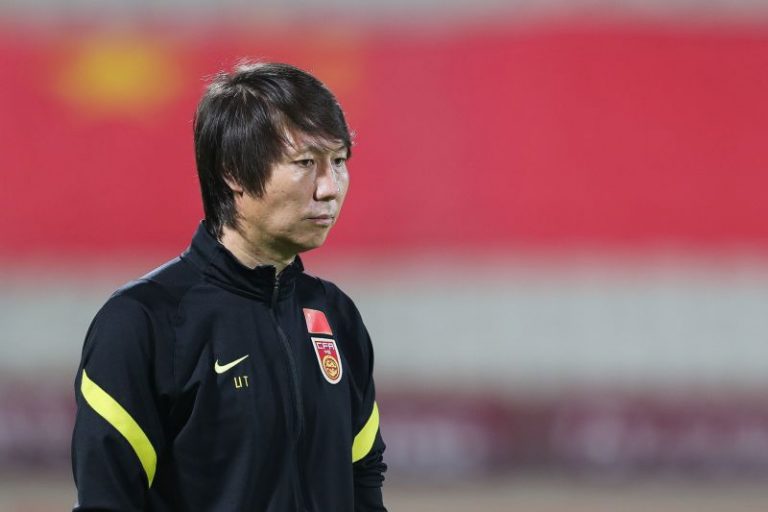A former Chinese soccer star and coach of the country’s national men’s team has been sentenced to 20 years in prison for corruption, state media reported on Friday.
Li Tie, 47, who played for the English Premier League Everton alongside Wayne Rooney in the early 2000s, is the biggest name to fall foul of a sweeping crackdown on rampant graft in China’s professional soccer league.
Despite leader Xi Jinping’s vision to turn China into a “world soccer superpower,” Chinese professional soccer has been mired with poor financial decision making, deep-rooted corruption and disappointing performance.
In 2022, after China’s national men’s team suffered a disappointing elimination in the preliminary stage of the FIFA World Cup in Qatar, the country’s anti-graft agency launched a far-reaching investigation into bribery and match-fixing in Chinese professional soccer.
Li was the first among about a dozen soccer officials ensnared in the crackdown. In March, Chen Xuyuan, the former head of China’s official soccer association, was sentenced to life in prison for corruption.
On Friday, Li was sentenced for multiple counts of bribery by a court in the city of Wuhan, state broadcaster CCTV reported.
During his trial in March, prosecutors accused Li of accepting more than 50 million yuan ($6.8 million) in bribes between 2019 and 2021, when he served as the head coach of China’s national team and national select team.
In exchange, he granted favors to certain players to be selected into the national team and helped certain clubs to win matches, according to prosecutors.
To become the head coach, Li and the club he was coaching at the time arranged bribes totaling 3 million yuan (US$412,800) to help him secure the role, the court heard.
Li was also accused of fixing matches for the two clubs he coached in Chinese leagues between 2015 and 2019, according to the prosecutors.
In a documentary about the soccer sector anti-corruption crackdown aired by CCTV in January – weeks before the trial, a remorseful Li said he “deeply regretted” taking the wrong path.
“When I was a player, I despised people who played fixed matches the most,” Li said during the show. But after becoming the head coach of a club, he realized it was a shortcut to improve his club’s ranking.
“Achieving success through such improper means actually made me increasingly shortsighted and eager for quick results,” he said. “It became a habit, and eventually, I even started to rely on it.”
China’s Communist Party-controlled courts have a conviction rate above 99 percent and it is not uncommon for state broadcasters to air confessions before trial in high profile cases.
Li is considered among the best Chinese players of his generation, and one of the most recognizable names in Chinese soccer.
In 2002, Li, along with star defender Sun Jihai of Manchester City, made history as the first Chinese players to play in the English Premier League, securing his status as a national sporting icon.
Li made 29 appearances for Everton during his debut season in England, as part of a memorable side that included a young Wayne Rooney and former Nigerian captain Joseph Yobo.
That year Li also represented China at the 2002 FIFA World Cup in South Korea and Japan, the first and only appearance for the men’s team at the quadrennial tournament.
Following his successful first season, Li signed a three-year contract with Everton, but his time in the first team was marred by a series of Injuries and he returned to China in 2008 after a brief but unsuccessful spell with Sheffield United.
Many Chinese soccer fans had hoped that Li, once the pride of Chinese soccer, could lead the men’s national soccer team into the World Cup when he was appointed the head coach in January 2020.
But Li resigned barely two years later amid an outpouring of backlash from fans over the team’s lackluster performance in the 2022 World Cup qualifiers.


